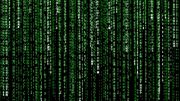Michelle Marchante/ Assistant Opinion Director
According to the New York Times, e-book sales skyrocketed up 1,260 percent between 2008 and 2010. By the time Borders closed its doors in 2011, experts were convinced that printed books would be obsolete by 2015. We’re now in 2016 and the publishing industry has been comfortingly rattled with the discovery that those predictions seem to be wrong-for now. According to a December analysis report by Nielsen BookScan, a data provider used by many in the industry, 571 million print books were sold in 2015, yet e-books, which experts had predicted would reach 50 or 60 percent of total book sales this year, barely reached the sale mark of 25 percent.
Living in a technology-dominated era, these numbers may sound confusing, as tablets, computers, e-readers and other technological devices are no doubt the most popular consumer purchases throughout the year. Yet those familiar with the history of books will know that this shift in the battle is only natural.
Before the production of what we’ve come to know as a book, society used to have manuscripts, which would normally be made of processed animal skin, known as parchment, instead of paper. For a time, people could choose to either buy parchment manuscripts or printed paper books; but it looked like the printed book would be a passing trend.
This changed after the invention of the Gutenberg Press and the appearance of more paper mills, making the production and distribution of printed books cheaper and faster until they became the norm.
Today, it might look like history is repeating itself with the battle between printed vs. digital. People naturally assumed that this new way of reading would replace the old one but according to university professor, Heather Blatt, this isn’t the case.
“When print technology initially developed, we can see that scholars looking back on that period… treated this form of transformative experience as if it would lead to the overturning of manuscript traditions but…more than 150 years after the introduction of the printing press we can see…other traditions of manuscript practices continuing even into the 20th century…and preserve that kind of handwritten manuscript tradition,” Blatt said to FIU student media.
“The initial prediction of the demolition of the printed book and the print book market were grossly overstated and we see that it continues to have a very hardy and even quite thriving tradition in contrast to the electronic book.”
At the same time, Blatt recognizes the “aesthetic” appeal of e-books that physical books can’t match such as in award-winning electronic novel, “Pride,” where readers actually open the character’s eyes to get the text.
While this battle for survival isn’t a first for the physical book and it certainly won’t be the last, physical books won’t be going anywhere.
According to Blatt, the book has been significant in Western European culture alone for almost 2,000 years and its success is due to a variety of different things such as the way we associate the physical act of holding a book with certain memories or emotions and most importantly, its durability.
“We’ve seen it tested over 500 years that if it’s made out of good material, a book can last quite a long time and we have a lot of examples already piling up with electronic formats that they don’t,” Blatt said.
“Although it might be possible to encode the data for centuries, reading and accessing it are very different experiences and we already have examples of early electronic works that were designed for particular platforms and operating systems that we can no longer access as they were originally designed unless we have those machines also archived.”
While the printed books of today have currently claimed victory in this fight, who’s to say that in the near future- if not the e-readers- a new device will appear to combat the role of books in society. While the future of the book industry continues to be shrouded in mystery, we can be assured that the presence of the book will never truly go away.
“It might change in some of its traditions, it might change in some of its habits of presentation…maybe the appearance of the book will be somewhat different or how we represent its details but I think it will be there,” Blatt said. “Even if our daily lives focus on electronic text instead, the physical object of the print book will still have a prominent role in our culture and in our lives.”
Disclaimer:
The opinions presented within this page do not represent the views of FIU Student Media Editorial Board. These views are separate from editorials and reflect individual perspectives of contributing writers and/or members of the University community.
Image courtesy of Flickr:https://www.flickr.com/photos/robie06/6477860207/in/photolist-aSqJ9X-pb5f3g-dWJpY6-ahCFPD-ahFro3-ahCMFK-fk6L8Z-fTXcMc-8JtoJU-oWmYeV-nphcU8-fTVgZH-f2c1BG-ahCMXx-ahFzew-ahCGTZ-nxuKMy-tUMrsi-ahFq1d-ahFsuN-ahCBsr-nfZ5Kd-bDSFxx-ahFwXL-qVz4vs-ahFtbs-fTXdkB-jgqB3D-ahCNGB-ahFuhu-ahFrJW-ahCCwc-ahFoaS-ahFwbj-ahCJGD-ahFymy-ahFxBY-osk93q-gie9XK-ahCM7F-ahCLKi-ahCMtH-ahCLke-ahCJje-nfYQfa-fcJ37V-68pJCf-nxtEya-nxuL9q-h2xEoS






Be the first to comment on "Student Thoughts: Print books claim victory over electronic books"